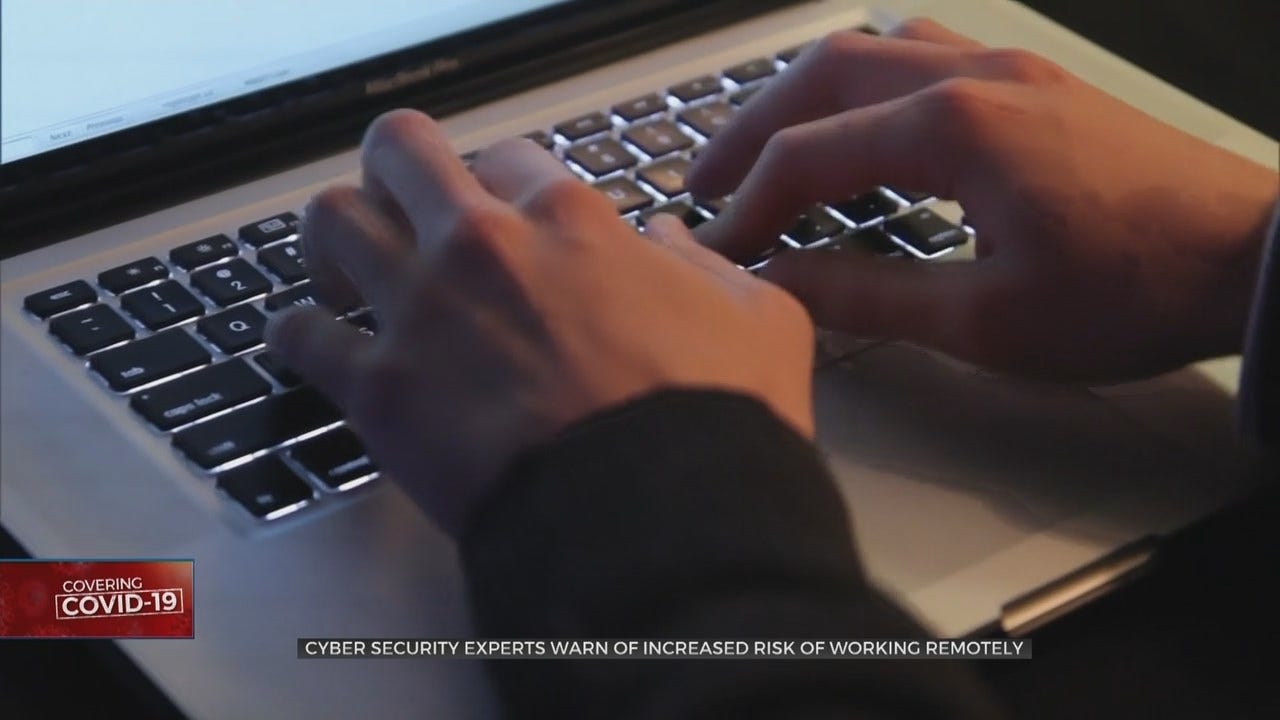Oklahomans Face Potential Risk Of More Cybercrime By Working From Home
With more people working from home during the COVID-19 pandemic, cyber security experts warn you are at greater risk of having your information stolen.Tuesday, March 31st 2020, 5:53 pm
With more people working from home during the COVID-19 pandemic, cyber security experts warn you are at greater risk of having your information stolen.
Associate Professor Tyler Moore said one of the best ways to protect yourself is to increase your security and use common sense.
Moore said the biggest cyber security threat he sees is criminals being able to target sensitive information, as some people work from home using their personal computers during the COVID-19 pandemic.
"I think there is a very significant risk that the data that companies have been trying to protect is now at risk through these devices that are now living in our homes," said Moore.
Moore said the information that is normally more secure at work is much more exposed at home.
"Instead of the bad guys getting access to your vacation photos they can get access to your boss’ personal information," said Moore.
Moore said some of the ways to combat that is applying software updates, having two strong passwords and adding a two-factor authentication to your email.
With people working and studying from home, more companies and schools across the country are using video-teleconferencing to communicate.
But the FBI warns criminals are now hijacking those platforms nationwide.
In a recent press release by the FBI Boston Field office, the FBI said they have "received multiple reports of conferences being disrupted by pornographic and/or hate images and threatening language.”
Moore said one way you can protect yourself is to use a virtual background like he did during our Zoom interview. That way criminals won’t know where you are.
He also suggested getting a sliding cover for your web camera.
"You can cover your webcam when it’s not in use because hackers have been able to remotely turn on Zoom cameras in the past," said Moore.
Moore said if you see an email that you do not recognize use common sense and do not under any circumstances open it.
If you are the victim of a teleconference hijacking or any other cybercrime, you can report it to the FBI at ic3.gov.
If you receive a specific threat, you can report it at tips.fbi.gov.
More Like This
April 22nd, 2020
April 16th, 2020
April 14th, 2020
Top Headlines
January 15th, 2025
January 15th, 2025
January 15th, 2025
January 15th, 2025










